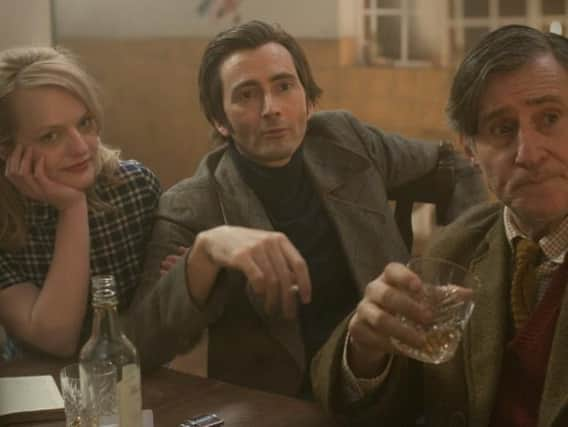David Tennant closes Glasgow Film Festival with RD Laing biopic


David Tennant drew the Glasgow Film Festival to a close as he unveiled his portrayal of a hugely controversial Scottish psychiatrist.
More than 25 years after developing an interest in the Glasgow-born RD Laing while studying at drama school in the city, Tennant launched a drama depicting his unconventional methods.
Advertisement
Hide AdThe Broadchurch star was at the festival for the world premiere of Mad To Be Normal, which recalls the impact he had with at Kingsley Hall - an experimental residential treatment centre he set up London in 1965.
Born in Govanhill, Laing was educated at Hutchesons Grammar, studied medicine at Glasgow University, and worked as a psychiatrist in the British Army in the 1950s.
He would go on to become one of the most divisive “counter-culture” figures in Britain in the late 1960s by trying to create a safe haven for people diagnosed with psychosis and schizophrenia, arguing for the breakdown of divisions between patients and the medical profession, and advocating the use of the psychedelic drug LSD for treatment.
Tennant said: “I first became aware of RD Laing when I was at the RSAMD, when one of the other years did the David Edgar play Mary Barnes, which is about one of the patients in Kingsley Hall, and which he comes into as a character. I was intrigued by him.
“I’ve always known there was this character from Glasgow out there and that there were stories to tell about him. I’ve always had a bit of sneak fascination with him and when I read the script I thought: ‘This is a story that has to be told.’
“He’s one of these people whose name crops up again and again in all sorts of weird different places because of his influence and ideas. He was more than a psychiatrist, he was a sort of counter-culture philosopher.
Advertisement
Hide Ad“His legacy is still hotly-debated, but the ideas that he was writing about and the debates he started are still rolling on today. He still infuriates as many people as adore him - he is still a very divisive figure. I don’t think people quite know what to make of him.
“In some ways he was his own worst enemy. He seemed to be some kind of strutting peacock who would upset everybody, but was also doing extraordinary work, which redefined how we think about psychosis. People struggle to make sense of these two contradictory elements, but from an acting point of view that is delicious.
Advertisement
Hide Ad“There were so many paradoxes. He had wells of empathy, but at the same time could be something of a bully. His own family saw nothing of him while he poured love into people he had never met before. He didn’t always seem to practice what he preached. That’s an extraordinary character to try to get to grips with.
“You just have to present as accurate a portrayal of a character like that as you possibly can. He was charismatic and people did fall for him. But he also drove people mad and he elicited reactions wherever he went. I didn’t try and make him sympathetic, I just tried to play the as he was. It’s quite hard not to like someone when you walk in their shoes.”
Robert Mullan, the film’s director, said: “I made the film partly because I felt sorry for Laing. Everyone expresses an opinion about him and thinks they know what he believed in. I wanted to look at the heroic things he did.
“He had a houseful of people who were, in conventional terms, completely mad, He let them stay without any medication or treatment and tried to treat them like human beings. It really was a revolutionary thing he tried to do.”